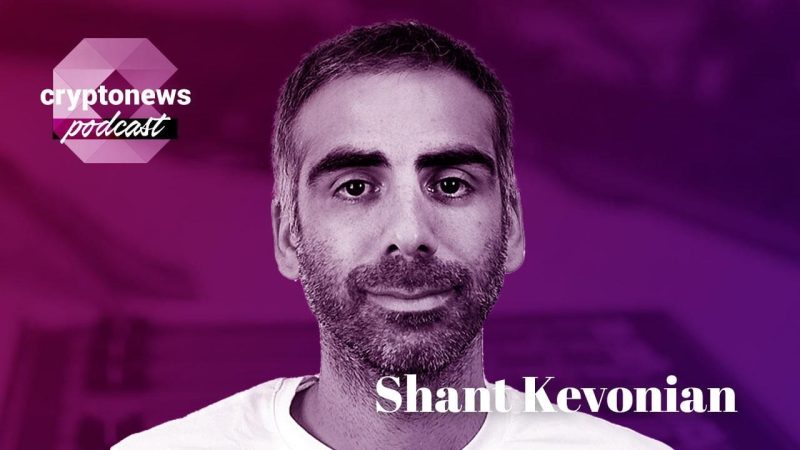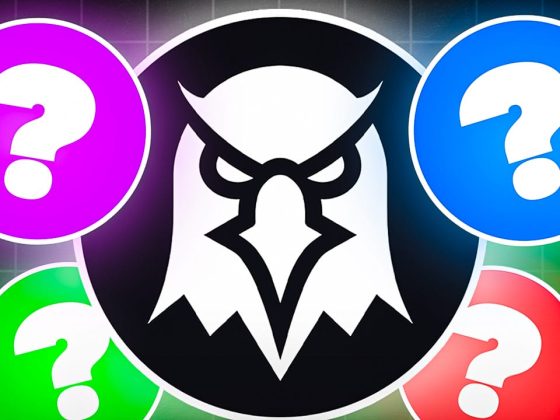Cryptonews Podcast host Matt Zahab sat down for an exclusive, wide-ranging interview with Shant Kevonian, the Founder and CEO of Web3 email platform EtherMail.
Kevonian explained why email is one of the first widely adopted decentralized apps and why it needs to evolve through Web3 technology.
He discussed the ease and massive benefits of using Web3 emails, how these email accounts are an excellent entry point into the Web3 realm, and why ‘Web3’ will become an obsolete term.
Lastly, the CEO touched upon the EMT token launch and how it changes the email experience.
Email: One of the First Decentralized Applications
Email is so significant today that we can’t imagine society without it.
According to Kevonian, it was actually one of the first widely adopted and standardized decentralized protocols, especially in terms of communication.
“And communication really helps accelerate adoption,” he said. Take, for example, the telegraph and the phone.
It helps people get accustomed to new technologies.
Breaking from @token2049! An exclusive talk with Gerald Heydenreich, the mind behind @ethermail_io.
Tune in for the insights!#TOKEN2049 #token2049dubai pic.twitter.com/SOFtxu7FaX
— Cryptonews.com (@cryptonews) April 18, 2024
That said, there has been a shift in how people use email with the arrival of newer apps.
Professional communication rules this sphere rather than personal communication. Both individuals and institutions use it widely.
However, what this also means is that “email has evolved in such a way that it also has legal jurisdiction.”
It can be used in court, for example, as it has validity provided by a set of technological insurances.
Our emails are ingrained in the way we interact with apps, websites, social media, e-commerce sites, and much more. They’ve become a form of an ID.
Therefore, they’re not going anywhere. Rather, they need to evolve, Kevonian argued.
“Since we very much believe this, we think that it’s right with all of the new blockchain and Web3 technologies to really take it into the next level,” he said.
From users’ and institutions’ perspectives, it’s much easier to adopt an upgrade to an existing, familiar protocol than an entirely new and foreign one.
‘Web3’ Will Soon Be Just ‘Internet’
Commenting on the need for Web3-related emails, Kevonian noted two major benefits users get form the get-go: privacy and fewer emails.
However, for those Web3-curious out there, it’s an excellent entry point to this sphere. There are no wallets or “crazy terms” to worry about. All one needs to do is create an email account.
Meanwhile, Web2 email comes with some fundamental issues.
Scams, phishing, and general trust issues are immediately apparent problems. If applied correctly, Web3 technologies can prevent these.
Another factor to note is that, while email is widely used, “you are the product.”
Google and other companies can read users’ emails, as there is no encryption, and use the gathered information to better target ads.
Again, because Web3 ethos revolves around privacy and anonymity, this is another aspect of email communication that this tech can improve.
And it can do so with an upgraded protocol through a familiar avenue of Web2 emailing.
“So, for us, that’s how we can bring these two worlds together,” said Kevonian. “You can improve the protocol. You can give the privacy, […] the means of communication, [and] all of this in one beautifully packaged solution, which we call EtherMail.”
In our latest Medium blog, our CEO, Shant Kevonian, discusses the significance of Email-as-a-Wallet and why it will play a key role in advancing the shift from Web2 to Web3.
Sign-up today and Earn Up to 900 EMCs! https://t.co/ImSoQJnPmIhttps://t.co/X2mfUPgb8k
— EtherMail (@ethermail_io) May 23, 2024
Notably, Kevonian said that EtherMail is close to bridging the two worlds and reaching a point where Web2 and Web3 become indistinguishable.
What’s more, there will be no reason to say ‘Web3’ anymore – it will be just ‘the Internet’.
“I think if we do manage that, and that is going to be coming in in one of our next releases, so really keep an eye on that,” the CEO remarked.
Furthermore, as more existing companies turn to Web3 and more new ones start as Web3 companies with EtherMail, all their users will automatically be Web3 users.
Launching a Token is an Arduous Process – But Worth It
The EtherMail team recently launched the EMT token.
Per the CEO, “launching a token, if you want to do it legitimately, is a very difficult and arduous process.”
Projects must be patient during this long effort, go through the proper regulatory channels, and work with many different parties, including lawyers, accountants, and government institutions.
“And the laws are still coming into play,” Kevonian said. “So there’s a lot of difficulty in discerning what is correct, what is not.”
Besides that, a project needs to have well-formed tokenomics and utility. It must answer questions such as how to demonstrate the utility, whether the product sustains itself, whether there is a demand for it, and so on.
“We worked with a lot of amazing partners to be able to pull that off,” Kevonian remarked.
48 hours ago, we finally launched our $EMT, and we are WOWED by the results so far:
More than 200,000 people signed up during this time.
We were the best-performing token on Gate during this period.
We’re officially in the market, and with this launch, we can take the… pic.twitter.com/4Ypj05Rbs5
— EtherMail (@ethermail_io) June 14, 2024
Speaking of utility, Kevonian noted the prevention of marketing abuse as an example of one of EMT’s most relevant points.
To explain further, in Europe, users consent to receiving ads from companies they are interested in. However, users can receive massive volumes of these emails and be bombarded with irrelevant promotions.
With EtherMail, even though the user gives consent, companies would have to reward the user with EMT to interact with those emails.
This system of paying upfront deters them from sending high volumes of irrelevant content.
Therefore, it ensures consent and gives a fair value via rewards for the time a user interacts with an email.
Therefore, “all parties are in a win-win situation,” Kevonian said.
____
That’s not all.
In this interview, Kevonian also discussed:
Web3 email benefits and use cases; EtherMail tech stack and the reason behind choosing the Ethereum ecosystem; choosing the versatile name ‘EtherMail’ to “encompass the entire EVM space”; it will be difficult for new technologies to dethrone EVM; exciting novel applications; his opinion on meme coins, NFTs, a unified blockchain in the EU, etc; natural transition into Web3: as more companies become/launch as Web3 companies, more users will be Web3 users; the next big thing (killer use case) in crypto.You can watch the full podcast episode here.
__________
About Shant Kevonian
Shant Kevonian is the Founder and CEO of Web3 email platform EtherMail. He is responsible for setting the company’s strategy, directing its product vision, developing company culture, and managing its agendas.
Kevonian left university early to enter the Barcelona startup scene. He joined hospitality startup ByHours as an intern and was promoted to CTO within six months.
He was a senior technical advisor for the interactive virtual concert platform SoundStage.fm, acquired by Audius in 2022.
Also, he has developed high-performance, proprietary algorithms for several startups in his decade-long career as a CTO.
The post Shant Kevonian, CEO of EtherMail, on Web3 Email, the Future of Email, Ethereum, and How to Successfully Launch Tokens | Ep. 349 appeared first on Cryptonews.


